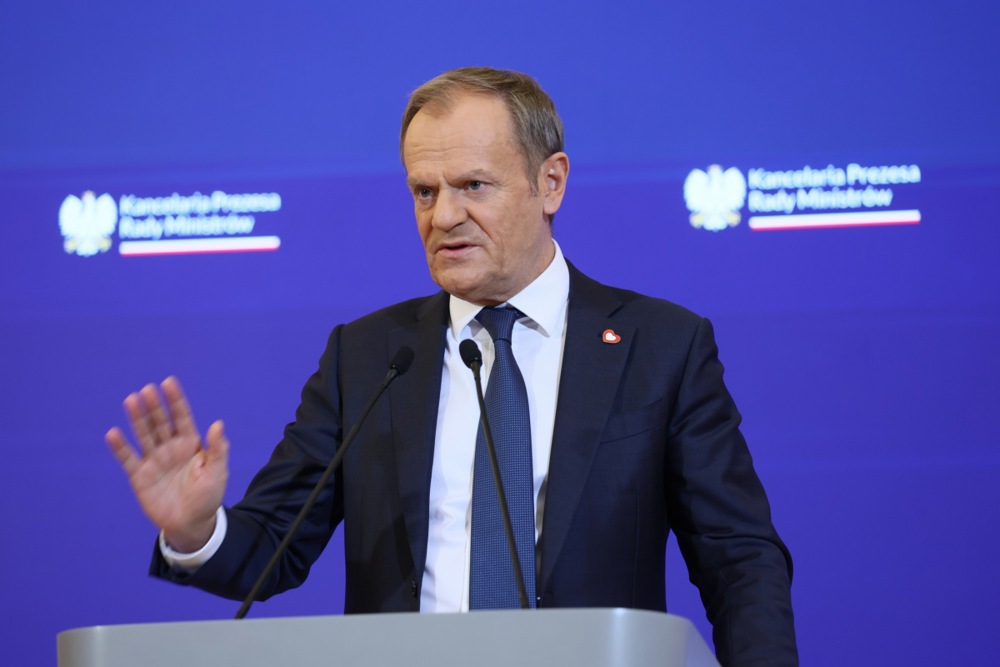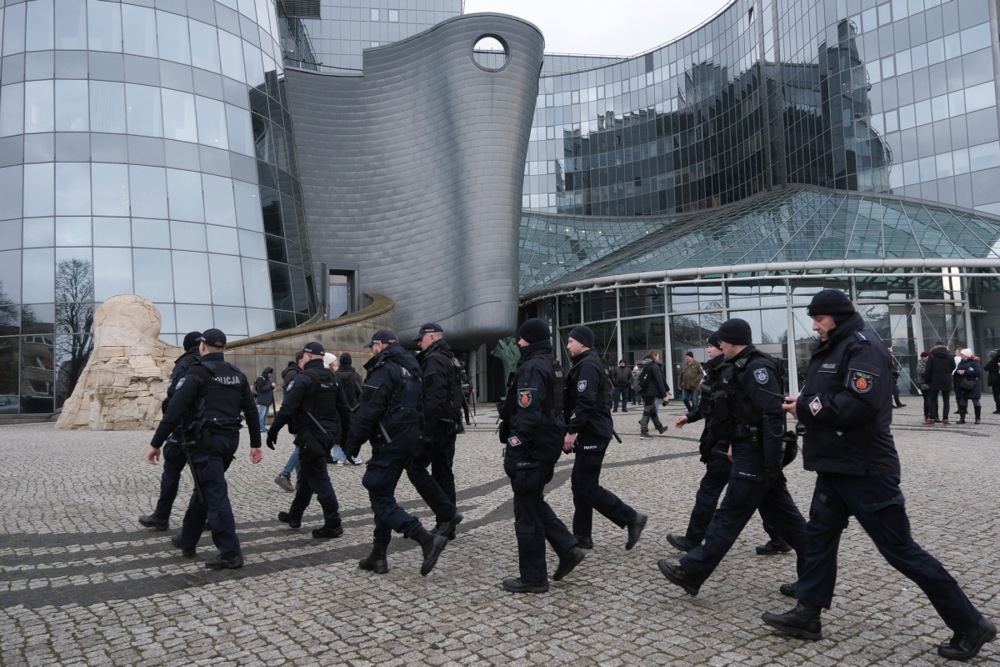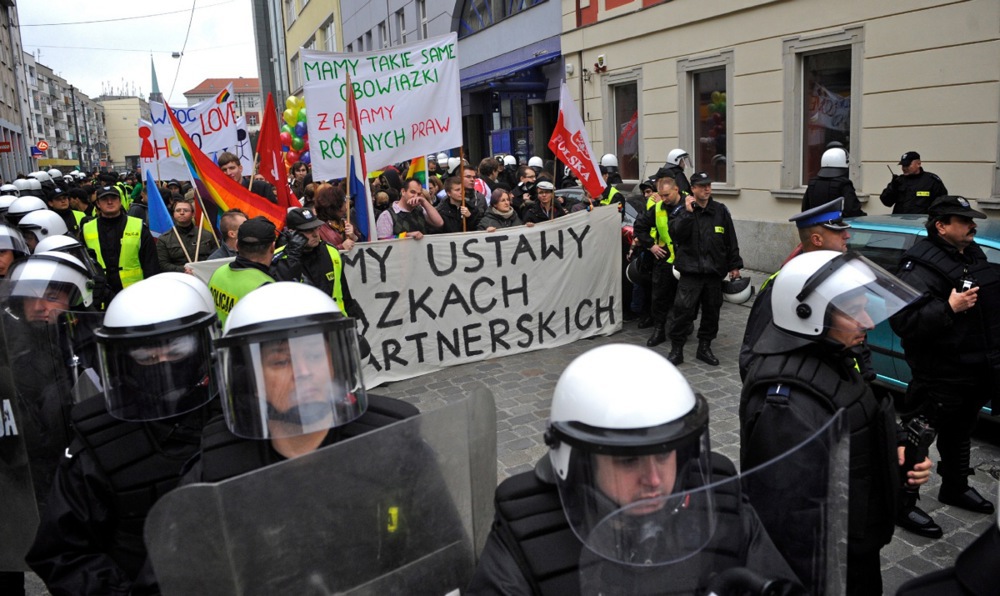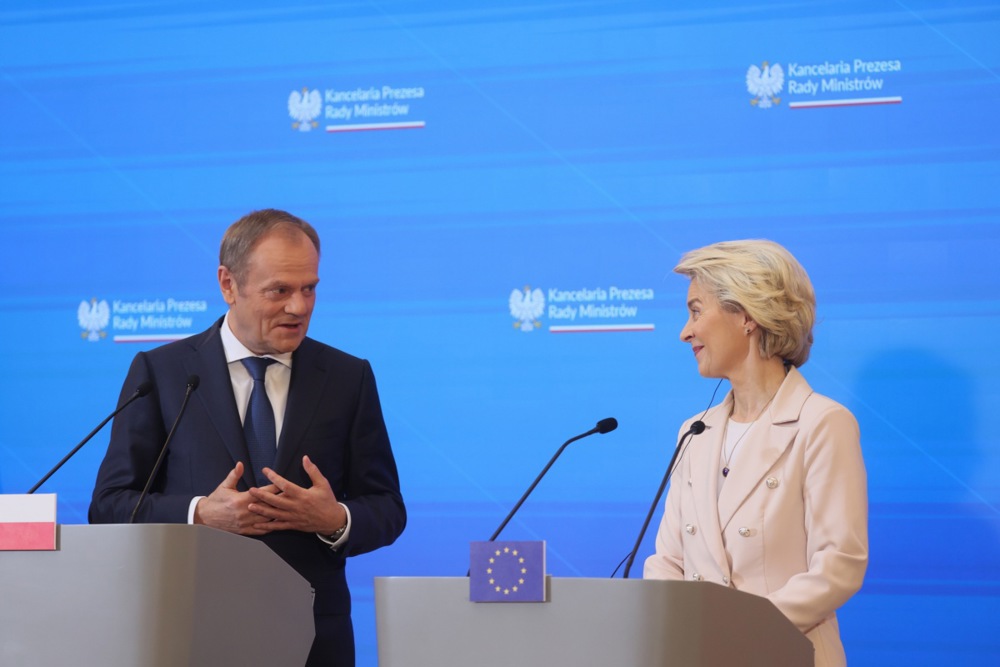The Polish Government has prepared an indictment against Maciej Świrski, the chairman of the National Broadcasting Council (KRRiTV).
Świrski is being charged with illegally withholding TV and radio licence-fee payments owed to public broadcasters that the Government took control of in December and put into liquidation.
In response to the announcement of his pending indictment, Świrski said it was “an attempt to intimidate a constitutional body in order to obtain the executive’s desired actions”.
The KRRiTV chief was elected to his post in 2022 by Parliament which, according to the Constitution, elects the members of the Council for six-year terms.
Świrski could only be removed if both Parliament and the Polish President Andrzej Duda refused to accept the KRRiTV’s annual report or if he was convicted by the Tribunal of State for breaches of the Constitution.
The KRRiTV chairman and Duda are allies of the opposition Conservatives (PiS) and have already announced they will oppose any attempts to remove Świrski from office.
His indictment, which was prepared by the culture ministry after parliamentary approval, will be submitted to the Tribunal of State. That is the only body which can bar public officials from holding office.
If Parliament accepts the indictment, Świrski will be suspended from carrying out his duties for the duration of his trial at least.
Bartłomiej Sienkiewicz, the former Polish culture minister now seeking a seat in the European Parliament in the June elections, told reporters on May 9 that Świrski was being indicted for two alleged reasons: “The first is the absolute violation of the law in failing to pay the money owed to public media,” he claimed.
That relates to the KRRiTV in January announcing its plans to withhold payments to public media, depositing the money in a bank. The funds would be unlocked once legal action the public media outlets face was resolved.
The Council cited “legal chaos” caused by the Tusk Government that replaced the PiS in office in December, leading to several legal challenges, some of which are continuing.
The Polish constitutional court, the membership of which the present Government alleges is legally flawed, has ruled against the Government on the takeover of public media and issued injunctions that have been ignored by the Tusk administration.
The second reason for the indictment as cited by Sienkiewicz related to what was termed Świrski’s approach “towards commercial media that were treated as hostile by PiS” and which, alleged the ex-minister, constituted a “blatant breach of impartiality”.
Under Świrski’s leadership, the KRRiTV fined several commercial outlets deemed sympathetic to the Liberals and the Left, including the US-owned TVN for alleged “lack of objectivity and lack of journalistic integrity”.
Świrski, appearing on independent Conservative channel TV Republika, linked the decision to try to remove him from office with other actions taken by the Government, saying the current administration was responsible for effectively putting Poland “in a state of liquidation”.
“Public television is being liquidated, as are key investment projects, the constitution has ceased to work, we have total lawlessness and can expect the worst from our executive powers,” he said.
Świrski argued that the Broadcasting Council was supposed to act as a check on the power of executives such as the National Audit Office and the Ombudsman. He claimed he was being indicted “in order to intimidate the KRRiTV and stop it regulating the media market so commercial interests close to the present Government can have free reign”.
He also said he believed the Government aimed to stop the growth of independent channels such as TV Republika, which has rapidly built up its audience and is seeking a licence to broadcast on the Polish free-to-air digital platform, a process KRRiTV is responsible for overseeing.
In March this year, a motion of indictment was brought by the ruling Tusk coalition to put central bank head Adam Glapiński on trial for alleged politicisation of the bank and failures in combating inflation. He was the first official to be brought before the State Tribunal since 2005.
On TV Republika, Świrski said he was proud to be “in good company” such as Glapiński, as well as the PiS leader Jarosław Kaczyński, Duda and ex-culture minister Piotr Gliński, who have all been threatened with Tribunal of State indictments.





